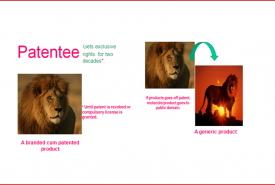WHAT IS NEEDED TO MAKE A CAREER WORTH APING IN PHARMACEUTICAL ORGANIZATION?
Introduction
Education leads to development of an individual and these individuals are expected to develop the larger mass of people, constituting society, city and ultimately nation. Education must deliver the result. A proper education and allied training make a person job-ready. Cut throat competition is taking its toll and students are taking extreme steps. This cut throat competition prevailing in almost all domains is changing equations across human resource (HR) departments. In pharmaceutical sciences opportunities are like never before. This sentence may sound ridiculous to some and some may approve it. First of all, let me demystify the fact that pharmaceutical sciences involve many sciences so students end up with the tag “Jack of all, master of none”. Why one forgets that pharmaceutical sciences mean (in broader sense) discovering-developing and launching new molecules and this is not possible by a person sound in only one stream/subject. This is not the job of every Tom, Dick and Harry or any Tom, Dick or Harry. Here comes the role of graduate or post graduate who has tremendous knowledge of the relevant field. Jobs are aplenty, especially after India became signatory country in newer patent laws (process patent since 2005). These news rules forced the closing of many reverse engineering chapters; but the silver line is that it also forced Indian pharma think tank to discover new molecules, which will require trained and talented man power. Credit for first such molecule goes to Ahmadabad based Cadila Healthcare Ltd. This article very precisely highlights the job scenario and allied aspects.










